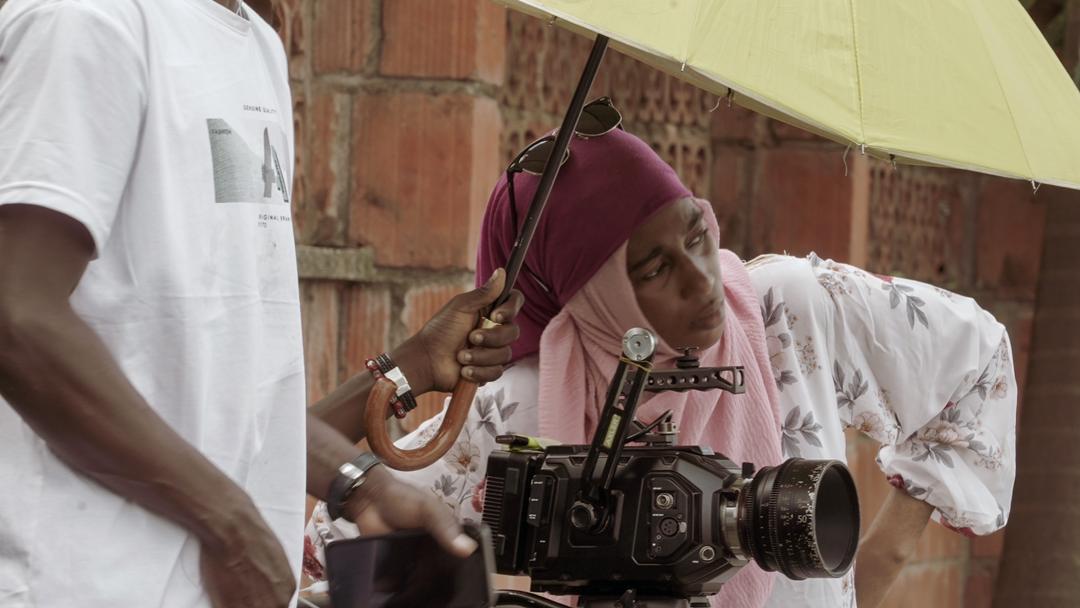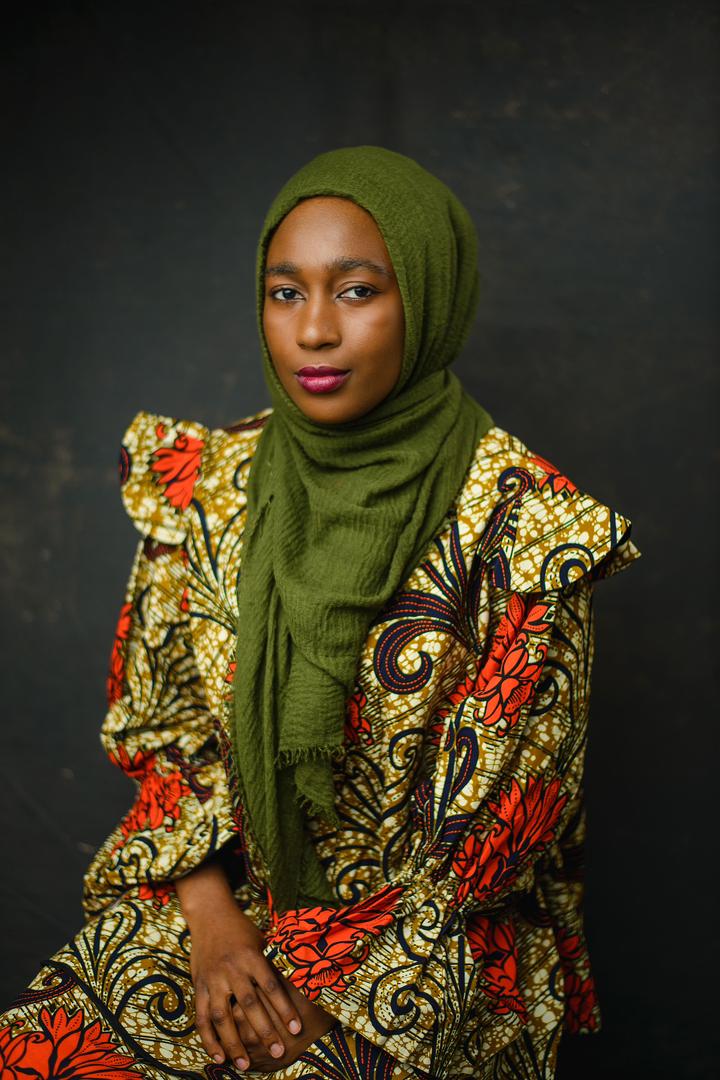Although born in Lagos, Korede Azeez shunted across many Nigerian cities owing to her father’s job in the military. At age 2, Azeez finally settled in Enugu,in southeastern Nigeria.
Growing up, Korede had a nose for storytelling. She crafted fiction, building her fluency in writing, prior to her teenage years, nurtured by the rich folktales of the ancient city.
Transitioning into Nollywood
Korede’s initiation into the world of storytelling wasn’t conventional. While her alma mater, Caritas University, didn’t offer a degree in theatre arts, fate led her to embrace mass communication. However, what initially seemed like a detour turned into a fascinating odyssey as she found herself behind the microphone as a presenter on the university’s radio station. This stint ignited her passion for audiovisual production, laying the foundation for her future endeavors.
“I have always loved stories, having grown up watching Nollywood. However, what stood out to me was the lack of characters I could truly identify with, particularly Muslim characters who shared my realities,” Korede says. “As a Muslim girl raised in Igbo land, I found that we were often overlooked, seeing the same narratives and characters without representation of our experiences.”
During her National Youth Service Corps (NYSC) program, Korede delved deeper into the realm of filmmaking, drawn to the allure of the Behind the Scenes segment. Her tenure as a technical assistant with BBC Media Action further honed her skills, providing invaluable insights into the intricacies of visual storytelling.
“I started making films in 2018 with a group of filmmakers collaborating on various projects, supporting each other to produce our films. I made two other short films,” Korede recalls.
Pioneering Representation
Driven by her desire to bridge the gap in representation, Korede embarked on her filmmaking journey in 2018. Collaborating with like-minded filmmakers, she embarked on a mission to bring marginalized narratives to the forefront. Two short films later, she found herself at the forefront of The First Features project, a transformative initiative aimed at nurturing the next generation of Nigerian film directors.

Assigned to helm “It Blooms in June,” Korede’s directorial debut epitomizes her commitment to authentic storytelling. The film, released on Amazon Prime in 2024, delves into the tender yet profound relationship between a father and daughter, navigating the complexities of love, loss, and acceptance. Through her lens, Korede amplifies the voices of Muslim characters, shedding light on experiences often overlooked in mainstream narratives.
Championing Women in Nollywood
Korede’s ascent in the male-dominated realm of Nollywood mirrors a broader shift in the industry’s landscape. With luminaries like Mo Abudu, Biodun Stephen, and Omoni Oboli leading the charge, women filmmakers are carving out spaces and shattering glass ceilings with their unparalleled creativity.
Recent successes like Funke Akindele’s “A Tribe Called Judah” and Oge Obasi’s “Mami Wata” underscore the transformative power of female-driven storytelling. Korede’s own contributions, including the Netflix debut of “Halima’s Choice” and recognition in the Netflix-UNESCO African Folktales, Reimagined competition, solidify her position as a trailblazer in her own right.
Navigating Challenges with Grace
Yet, Korede’s journey hasn’t been without its challenges. Balancing the demands of filmmaking with the responsibilities of motherhood posed formidable obstacles, testing her physical and emotional resilience.
“I shot ‘It Blooms in June’ while I was breastfeeding my baby, and I shot ‘Difficulty Comes with Ease’ when I was pregnant,” she says.
Despite the hurdles, Korede finds solace in her unwavering support system, particularly her husband, whose steadfast encouragement fuels her ambitions. “I have an excellent support system, my husband is very supportive which has made things easier.”
Looking ahead, Korede remains steadfast in her conviction that storytelling has the power to shape perceptions and ignite change. As she continues to defy conventions and amplify underrepresented voices, her journey serves as a testament to the transformative power of cinema and the indomitable spirit of those who dare to dream.
“The movies produced in a country play a significant role in shaping our conversations and perspectives. Stories hold immense power in influencing our collective mindset as a society. Our thoughts, in turn, influence our actions.”
In the vibrant landscape of Nigerian cinema, where stories intertwine with culture, identity, and societal dynamics, Korede’s narrative stands out as a beacon of representation and resilience. Born and raised in an Igbo city as a Yoruba Muslim, Korede’s journey into filmmaking traverses paths less traveled, carving spaces for underrepresented voices in an industry bustling with creativity and innovation.
Korede Azeez, born in Lagos and raised in Enugu, developed her storytelling skills at a young age, influenced by the rich folktales of her childhood. She pursued mass communication at Caritas University, where she found her passion for audiovisual production as a radio presenter. This led her to filmmaking, particularly focusing on creating representations of Muslim characters, who are often overlooked in mainstream Nigerian cinema.
During her National Youth Service Corps, Korede gained valuable experience in visual storytelling, further honing her skills at BBC Media Action. In 2018, she started making films, collaborating with other filmmakers to produce short films that highlight marginalized narratives. She directed her first feature film, "It Blooms in June," which debuted on Amazon Prime in 2024, focusing on the nuanced relationships within a family and amplifying Muslim voices.
Korede's rise in the male-dominated Nollywood industry aligns with broader trends of increasing female representation, led by figures like Mo Abudu and Funke Akindele. Despite challenges, including balancing motherhood and filmmaking, Korede's strong support system, particularly her husband, has been crucial in her journey. She continues to champion the power of storytelling in shaping societal perspectives and remains committed to amplifying underrepresented voices in cinema.
In her career, Korede has made significant contributions, including the Netflix debut of “Halima’s Choice” and recognition in the Netflix-UNESCO African Folktales, Reimagined competition. Her journey underscores the transformative power of cinema and the importance of diverse representation in storytelling.






